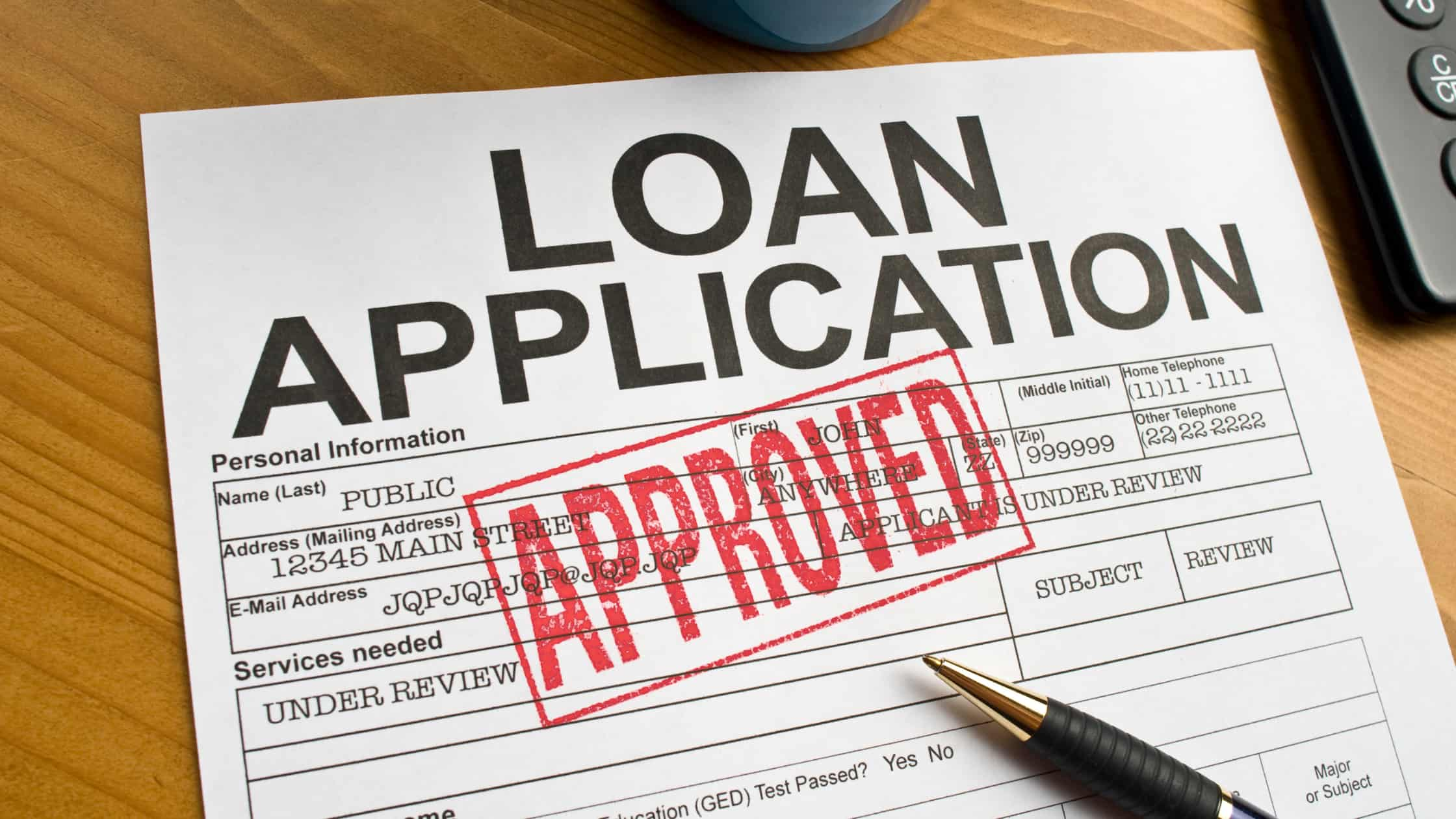
Colorado Home Loans: Your Guide to Securing the Best Rates
Are you dreaming of owning a home beneath Colorado’s majestic peaks? You’re not alone; Colorado’s housing market continues to attract buyers with its stunning landscapes and robust economy. With median home prices increasing 7.4% over the past year to $621,800 as of April 2024, according to the Colorado Association of REALTORS, securing favorable financing has never been more crucial for your financial future. Understanding how to navigate Colorado home loans could save you thousands over the life of your mortgage.
Ready to embark on your home buying journey in Colorado? At JROC Properties,we specialize in connecting buyers with their ideal homes in this stunning state. Whether you’re looking for a cozy mountain retreat or a modern urban space, our expert team is here to guide you every step of the way.
Also Read:
Table of Contents

Understanding Colorado Home Loans: A Comprehensive Guide for Prospective Homeowners
The Colorado real estate market presents a unique blend of opportunity and challenge for homebuyers. From the bustling metropolitan areas of Denver and Boulder to the tranquil mountain towns and expansive rural properties, the diversity of available housing options meets virtually every lifestyle preference.
Colorado’s housing market has maintained remarkable resilience, even during economic fluctuations. Population growth continues to drive demand, with many newcomers attracted to the state’s economic vitality, outdoor lifestyle, and relatively lower cost of living compared to coastal markets. According to the Colorado Association of REALTORS, there were28,574 homes for sale in Colorado in February 2024, up 24.0% year-over-year, indicating improving inventory conditions for buyers.
Recent trends show an increasing preference for energy-efficient homes and properties with dedicated spaces for remote work.
Key Benefits of Owning a Home in Colorado
Homeownership in Colorado offers significant financial advantages, including one of the lowest effective property tax rates in the nation at just 0.55%, well below the national average. Additionally, the state’s real estate markethas seen strong appreciation trends, with home prices increasing over 40% in the last five years and 329% since 2000, outpacing the national increase of 289%. Coupled with a high quality of life, abundant outdoor recreational opportunities, and over 300 days of sunshine annually, Colorado provides an attractive living environment for homeowners.
Navigating the Mortgage Process in Colorado
Securing a mortgage in Colorado requires knowledge of the local lending market. The process usually starts with pre-approval, which sets a budget and strengthens your offer in competitive situations. Lenders will assess your credit score, income stability, debt-to-income ratio, and down payment.
Working with lenders who specialize in Colorado can provide advantages, as they understand regional market conditions and specific assistance programs. Documentation for home loans typically includes proof of income, asset verification, employment history, and credit information, so being organized can speed up approval. Additionally, understanding Colorado’s closing process can help avoid surprises at the end of your transaction.
Types of Home Loans Available in Colorado
Understanding the variety of Colorado home loans available can help you select the financing option that aligns best with your financial situation and homeownership goals. Each loan type offers unique advantages and comes with specific requirements that make it more or less suitable for your particular circumstances.
Conventional Home Loans
Conventional loans are the most popular mortgage option in Colorado, making up about 70% of home financing. They follow Fannie Mae and Freddie Mac guidelines and are not government-backed, offering flexibility in terms and qualifications. A minimum credit score of 620 is typically required, with better rates for scores above 740. Down payments start at 3% for first-time buyers and 5% for others, with PMI needed for down payments under 20%. Conventional loans can offer lower costs and fewer property restrictions, making them a cost-effective choice for buyers with strong credit and stable incomes. It’s important to compare offerings from different providers to find the best terms.
FHA Loans: Advantages and Requirements
FHA loans offer an accessible route to homeownership for many Coloradans who may struggle with conventional financing. Backed by the Federal Housing Administration, they have lenient credit requirements, with minimum scores of 580 with a 3.5% down payment and 500 with 10%. However, these loans come with mandatory mortgage insurance premiums (MIP), raising overall costs. Additionally, FHA loans have stricter property standards, which can pose challenges for purchasing older homes or fixer-uppers in Colorado’s historic neighborhoods.
VA Loans for Veterans and Military Service Members
VA loans offer a powerful home financing option for veterans and active military personnel, especially in Colorado, where there is a significant military presence. Key benefits include zero down payment, no mortgage insurance, competitive interest rates (typically 0.25% to 0.5% lower than conventional loans), flexible credit requirements, and capped closing costs. The VA funding fee (around 2.3% for first-time users) can be included in the loan amount to reduce upfront costs. Eligibility requires honorable service and specific time commitments. It’s essential to work with lenders experienced in VA transactions to ensure a smooth approval process and closing.
USDA Rural Development Loans: Eligibility and Benefits
USDA loans present an excellent opportunity for home buyers in Colorado’s rural and suburban areas, including regions near major metropolitan centers. These loans offer 100% financing with no down payment and below-market interest rates, though income limits typically cap at 115% of the area median income. They come with a low upfront guarantee fee (1% of the loan amount) and an annual fee (0.35%), both more affordable than FHA mortgage insurance. While properties must be located in USDA-designated rural areas, many growing communities, especially in mountain towns and areas surrounding urban centers, qualify, making them an attractive option for moderate-income buyers.
Jumbo Loans for High-Value Properties
In Colorado’s luxury markets, such as Aspen, Vail, Boulder, and parts of Denver, jumbo loans are crucial for financing properties that exceed the Federal Housing Finance Agency’s conforming loan limits of $726,200. To qualify for these loans, borrowers typically need excellent credit (700+), significant down payments (10-20%), and substantial income and reserves. In return for these stringent requirements, they can finance multi-million dollar properties at competitive interest rates, generally 0.25-0.5% higher than conforming loans. The jumbo market also offers a variety of lenders specializing in unique property types, which can be especially beneficial for challenging financing scenarios.
First-Time Home Buyer Programs and Assistance
Colorado supports first-time homebuyers through various programs, mainly facilitated by the Colorado Housing and Finance Authority (CHFA), which offers loan programs and up to 4% down payment assistance for middle-income buyers. In 2024, CHFA launched the FirstGeneration and FirstGeneration Plus programs to help first-generation homebuyers. Additionally, local initiatives, such as Denver’s metroDPA program, which increased its income limit to $195,600, provide grants, forgivable loans, and tax credits. It’s important to consult local lenders for the latest opportunities, as these programs frequently change.

Current Mortgage Rates and Market Trends in Colorado
The Colorado mortgage market is constantly shifting, influenced by both national economic policies and local market conditions. Understanding the current environment can save you thousands of dollars over the life of your loan and significantly impact your home-buying strategy.
Understanding Mortgage Rates and Their Impact on Buying Power
Mortgage rates in Colorado function as the financial fulcrum that determines your purchasing power in the housing market. Even small rate fluctuations can dramatically affect what you can afford. For perspective, a 1% increase in interest rate reduces buying power by approximately 10%. This means a buyer who qualifies for a $500,000 home at a 4% rate would only be eligible for a $450,000 home if rates rise to 5%, assuming the same monthly payment.
As of April 1, 2024, mortgage rates in Colorado stand at 6.87% for 30-year fixed-rate mortgages and 6.08% for 15-year fixed-rate mortgages, according toBankrate. These rates are slightly higher than the national average of 6.775% for a 30-year fixed mortgage. This significant variance demonstrates why rate shopping and timing can be as important as the purchase price negotiation.
The relationship between rates and home prices in Colorado creates interesting market dynamics. When rates rise, buyer demand often cools, potentially slowing price growth or even creating price reductions in some areas. Conversely, when rates drop, increased buying power typically stimulates demand, potentially accelerating price appreciation. Understanding this relationship helps buyers determine whether waiting for rate changes might offset or compound home price trends.
Tips for Locking in the Best Rates
To secure favorable mortgage rates in Colorado, start by optimizing your credit profile, as competitive rates typically go to borrowers with scores above 740. Improving your score before applying can lead to significant savings. When rate shopping, contact multiple lenders within a 14-day window to minimize the impact on your credit score, and compare not just rates but also the Annual Percentage Rate (APR) for a comprehensive cost analysis. Consider local lenders who understand Colorado’s markets and check for “float down” provisions that let you secure lower rates during your lock period, though watch for additional fees. Timing your rate lock is crucial to avoid rate increases before closing.
Economic Factors Affecting Mortgage Rates in Colorado
Federal Reserve policy significantly influences Colorado mortgage refinance rates, with experts predicting potential cuts of 50-100 basis points by the end of 2024. These shifts often lead to immediate effects on mortgage rates as markets anticipate future Fed decisions. Inflation trends also play a crucial role, with Colorado facing above-average rates recently, which have pressured mortgage rates upward. As inflation begins to moderate, rates may stabilize or decline.
Despite these challenges, Colorado’s strong economic growth supports a resilient housing market. A tight labor market continues to drive housing demand, even amidst rising rates. Regional variations in mortgage pricing reflect local economic conditions, with stronger job markets often leading to better rate offerings. Additionally, Colorado’s elevated home prices mean many borrowers face higher rates on jumbo loans compared to conforming loans, making it important for borrowers to understand local factors when evaluating their mortgage options.

Assistance Programs and Grants for Colorado Homebuyers
Navigating the financial hurdles of homeownership becomes significantly more manageable when you leverage the various assistance programs available to Colorado residents. These initiatives can provide crucial support with down payments, closing costs, and favorable loan terms that might otherwise place homeownership beyond reach.
Colorado Housing and Finance Authority (CHFA) Overview
The Colorado Housing and Finance Authority stands as the cornerstone of homebuying assistance in the state, serving as a trusted resource for first-time and low-to-moderate-income buyers since 1973. CHFA doesn’t directly issue Colorado home loans but works with an extensive network of approved lenders throughout the state to provide accessible financing options.
In 2024, CHFA expanded its Housing Tax Credit program,allocating an additional $768 million in tax credits over eight yearsto subsidize affordable housing projects. This expansion demonstrates the organization’s commitment to addressing Colorado’s housing affordability challenges through multiple channels.
CHFA’s mission is to facilitate homeownership through specialized loan programs that feature competitive interest rates and flexible qualification requirements, including lower credit score minimums (often 620) and higher debt-to-income ratios than conventional loans. A key element of CHFA’s approach is mandatory homebuyer education courses designed to prepare new homeowners for ownership responsibilities, ultimately reducing default rates and promoting sustainable homeownership. These courses can be completed online or in person, offering flexibility while ensuring homebuyers are well-informed.
Down Payment Assistance Programs: How They Work
Colorado housing assistance programs focus heavily on overcoming the down payment barrier, which remains the most significant obstacle for many would-be homeowners. The CHFA FirstGeneration Program stands out as particularly impactful, offering up to $25,000 in down payment assistance specifically for first-generation homebuyers, those whose parents or guardians never owned a home, or individuals raised in foster care.
For those who don’t qualify under the FirstGeneration criteria, CHFA offers additional down payment assistance options that pair with their first mortgage programs. According to theCHFA website, they increased their down payment assistance options in 2024, now offering up to $25,000 or 4% of the first mortgage amount (whichever is less) as a zero-interest second mortgage with repayment deferred until the home is sold or refinanced.
Local programs supplement these statewide offerings. The MetroDPA Program serves homebuyers in select Front Range communities with income limits up to $195,600 and credit score requirements of 640+ (with some options for those with scores as low as 620). Meanwhile, the Colorado Housing Assistance Corporation (CHAC) Program provides $5,000 to $12,000 for down payment and closing costs through loans carrying 3-5% interest rates for qualified first-time homebuyers.
Tax Credits and Incentives for Homebuyers
Colorado offers several tax incentives that can significantly reduce homeownership costs, most notably the Mortgage Credit Certificate (MCC) program, which allows qualified buyers to convert a portion of their mortgage interest into a direct federal tax credit of up to $2,000 annually for the life of the loan. Additionally, tax savings can be achieved through the Residential Energy Credit for energy-efficient home upgrades, such as solar panels and improved insulation. First-time homebuyers may also consider penalty-free withdrawals of up to $10,000 from IRA accounts for home purchases under federal provisions. However, this should be weighed against long-term retirement goals.
Additional State and Local Homebuyer Assistance Options
Colorado’s commitment to affordable housing extends beyond CHFA to include numerous local initiatives tailored to specific communities and demographics. The home loans Colorado market includes city and county-specific programs like Denver’s metroDPA, which provides down payment assistance as a second mortgage that requires no monthly payments and may be forgiven after a specified occupancy period.
In 2024, significant legislative changes have impacted housing assistance in Colorado. House Bill 24-1175 was passed, giving local governments a right of first refusal on the sale of qualifying affordable housing properties and a right of first offer on certain market-rate multifamily properties. Additionally, House Bill 24-1434 was introduced to expand funding for affordable housing developments through additional tax credits, according toCPR News.
Regional housing authorities in Colorado run tailored assistance programs to meet local housing needs, with support from the Colorado Division of Housing. Among these is the Single Family Owner-occupied Rehabilitation program, which aids homeowners with repairs, along with rental assistance programs for those saving for a down payment. Prospective buyers should contact HUD-approved housing counseling agencies for free or low-cost consultations to explore eligibility and find suitable assistance options, including lesser-known programs that may be beneficial.

Strategic Steps to Secure Your Colorado Home Loan
Navigating the path to homeownership in Colorado requires careful planning and strategic execution. With the state’s competitive real estate market and unique lending requirements, preparing thoroughly before applying for Colorado home loans can significantly improve your chances of approval and help secure favorable terms.
Preparing Your Finances for the Application Process
Financial preparation for obtaining a mortgage in Colorado should ideally start 6-12 months in advance. Begin by creating a detailed monthly budget that factors in expenses like mortgage payments, property taxes (averaging 0.55%), homeowners insurance, HOA fees, and maintenance costs (1-3% of the home’s value annually). Strengthen your down payment savings by automating contributions to a high-yield savings account; while some loans accept down payments as low as 3-5%, aiming for 20% can eliminate private mortgage insurance and secure better loan terms. Consider using first-time homebuyer programs for additional assistance. To improve your loan eligibility, work on reducing your debt-to-income (DTI) ratio by paying down high-interest debts, with lenders favoring DTI ratios below 43% and offering the best rates for those under 36%.
Gathering Necessary Documentation and Information
Colorado’s mortgage application process requires comprehensive documentation to verify your financial situation. Standard requirements include:
- Two years of W-2s and federal tax returns (including all schedules)
- Recent pay stubs covering 30 consecutive days
- Bank statements for all accounts for the past 2-3 months
- Investment account statements for retirement accounts and other assets
- Proof of rental payment history (particularly important for first-time buyers)
- Valid identification and Social Security number
Self-employed applicants face additional scrutiny from mortgage lenders in Colorado, typically needing 12-24 months of recent bank statements, profit and loss statements, and business tax returns. Creating a separate business checking account if you don’t already have one can help clarify your personal versus business finances and strengthen your application.
For specialized programs like CHFA loans, gather documentation proving completion of a CHFA-approved homebuyer education class, which must be completed prior to closing. Additionally, applicants for certain Colorado home loan programs may need to provide additional documentation as required by the specific program guidelines.
Proven Strategies for Improving Credit Scores
Your credit score plays a crucial role in securing favorable Colorado mortgage loans, with a minimum score of 620 typically required and the best rates reserved for scores above 740. Improving your credit score can lead to significant savings; for instance, reducing credit card balances below 30% of available credit can boost your score by 20-40 points within 1-2 months, potentially lowering your mortgage rate by 0.25-0.5%, which could save over $20,000 on a $400,000 mortgage over 30 years. Maintaining a consistent payment history is essential, as it constitutes 35% of your FICO score, and becoming an authorized user on a family member’s credit card or adding utility and rent payment histories can further improve your score swiftly.
Selecting the Right Lender: Questions to Ask and Factors to Consider
The diversity among Colorado mortgage lenders creates opportunities to find ideal terms for your situation, but requires careful comparison. Beyond basic rate shopping, consider:
- Local market expertise: Lenders familiar with Colorado’s unique markets (from urban Denver to mountain communities) often navigate property-specific challenges more effectively than national lenders with less regional experience.
- Portfolio lending options: Some Colorado mortgage lenders offer “portfolio loans” that they keep in-house rather than sell to secondary markets. These may provide more flexible terms for unique properties or financial situations that don’t fit conventional guidelines.
- Specialized program access: Not all lenders participate in programs like CHFA down payment assistance or specialized community development initiatives. Verify program availability before proceeding with applications.
Request detailed loan estimates from at least three lenders, comparing not just rates but also closing costs, which can vary significantly among Colorado mortgage lenders. Pay particular attention to origination charges, discount points, and lender credits when evaluating the true cost of each option.

Refinancing Options for Colorado Homeowners
Many Colorado homeowners find themselves wondering if refinancing could improve their financial situation, especially as market conditions fluctuate. With proper analysis and timing, refinancing your Colorado home mortgage can lead to significant savings or help you achieve important financial goals.
Benefits of Refinancing: When and Why to Consider It
Refinancing mortgages in Colorado serves various strategic financial purposes, primarily aimed at securing lower interest rates to reduce monthly payments and total interest costs. For example, a homeowner with a $400,000 loan at 6% could save around $250 monthly by refinancing to 5%. Another effective approach is shortening the loan term, where transitioning from a 30-year to a 15-year mortgage can lead to lower rates and significant interest savings, making it particularly beneficial for homeowners whose incomes have increased.
Additionally, the CHFA’s FHA Streamline Refinance program, launched on November 4, 2023, allows existing CHFA borrowers to refinance with less documentation needed. Cash-out refinancing is also a viable option, enabling homeowners to access their accumulated equity for major expenses, such as home improvements or debt consolidation. This approach is especially valuable in light of Colorado’s strong property appreciation, particularly when the new mortgage rate is lower than existing debts, resulting in reduced housing costs and overall debt expenses.
Comparing Refinance Rates and Terms
Finding the best refinance rates in Colorado involves strategic lender comparison and timing. Start by researching current average rates on platforms like the Colorado Housing and Finance Authority website. Keep in mind that advertised rates usually cater to ideal conditions, so your actual rate may vary. Request Loan Estimates from at least three lenders, including major national banks, local credit unions, and online lenders, as each may offer different advantages. Local credit unions often provide rates 0.125% to 0.25% lower than national banks, especially for established members, while online lenders might offer streamlined processes with reduced fees.
When comparing lenders, evaluate the entire fee structure, including origination fees, which generally range from 0.5% to 1% of the loan amount. Some lenders might offer “no-cost” refinances that integrate fees into the interest rate. Pay close attention to the Annual Percentage Rate (APR), as it includes most fees and better reflects your total costs. For a $400,000 refinance, each 0.25% in fees equals $1,000 in closing costs that can impact your break-even timeline.
How to Calculate Potential Savings with a Refinance
To determine if refinancing makes financial sense, you’ll need to calculate your break-even point, which is the time it takes for monthly savings to offset closing costs. Gather your current loan details, potential new loan terms, and estimated closing costs (usually 2-5% of the loan amount). The basic formula for the break-even point divides total closing costs by monthly savings. For instance, if refinancing costs $6,000 and saves you $200 monthly, your break-even point is 30 months. This helps assess whether refinancing aligns with your homeownership plans.
For a more thorough analysis, consider the total cost of both loans over your expected ownership period, which includes differences in amortization schedules and opportunity costs. Online refinance calculators can assist with these calculations, but consulting a financial advisor knowledgeable about Colorado mortgage refinance rates can offer tailored insights. Additionally, factor in tax implications, as mortgage interest remains deductible for many, but changes from the 2017 tax law may affect some homeowners, and points paid for refinancing must be amortized over the loan term, influencing effective annual savings.
Conclusion
Navigating the home loan market in Colorado can be a rewarding journey when equipped with the right knowledge and resources. The state’s robust real estate market, combined with competitive financing options and a variety of loan types, provides ample opportunities for both first-time buyers and seasoned homeowners. As you embark on this significant investment, remember to consider not only the immediate costs but also the long-term financial benefits of homeownership in Colorado.
With expert guidance from local professionals like those at JROC Properties, you can find a home that aligns perfectly with your lifestyle and budget. By understanding the intricacies of the mortgage process and selecting the right loan type for your situation, you can position yourself for success in achieving your dream of owning a home in the beautiful state of Colorado. Start your journey today, and take the first step towards securing a place you can truly call home.

